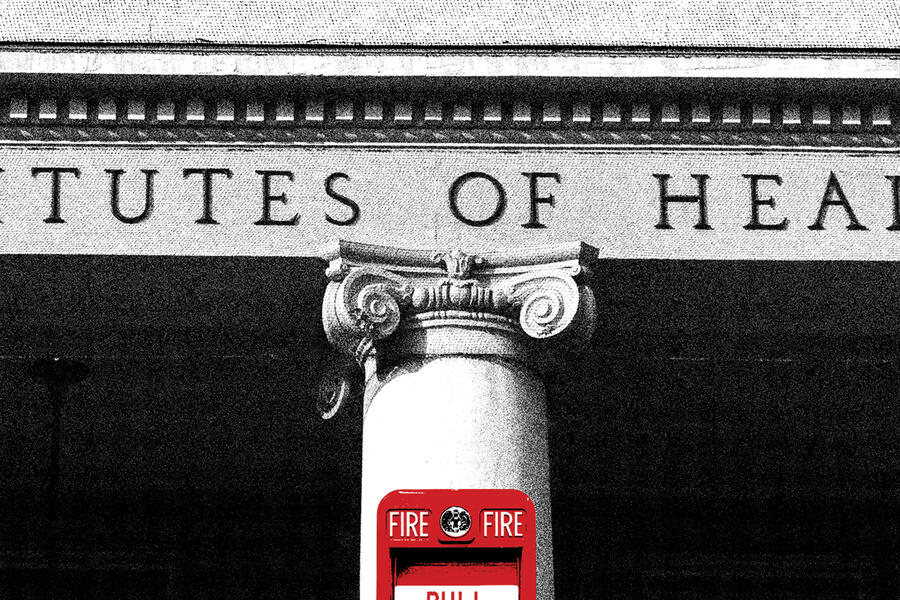I always hated public speaking. As a student, I could not force myself to volunteer my opinion during classroom discussions. When faced with presentations, my voice would shake. I would break into a sweat. This stage fright was part personality, part upbringing. I was raised to work hard, succeed academically, and keep my head down.
Fast-forward a couple of decades, and I find myself sitting in MSNBC's studios in Washington, D.C., waiting to be interviewed on live TV, cool as a cucumber. My life has been so upended since February that I celebrate opportunities to tell my story.
I was a science writer and editor for the National Institutes of Health. I wrote about health topics like oral cancer, chronic jaw pain, and fluoride for the general public. Our health information was our most visited web content.
In February, I was fired with thousands of probationary federal employees. New federal employees have few rights to appeal terminations, making us easy targets. These firings, recently ruled illegal by a federal judge, blatantly ignored established rules for firing federal employees. Like many others, my stock termination letter noted "poor performance"—one of the few reasons we could legally be fired—ignoring stellar performance reviews and plans for promotions. I have joined hundreds of fired NIH employees in appealing our terminations.
Since I was fired, the rest of my communications team was eliminated. There is no one left to translate technical research into clear language that conveys its impact and benefits to the general public, though this transparency is congressionally mandated. The widespread attack on research, science, and science communication is a catastrophe for public health.
But I've found inspiration in speaking out with other fired federal employees. We sat on the steps of the U.S. Capitol to peacefully protest the hasty firings and dismantling of our agencies. A stream of elected officials offered us encouragement and hope.
Before my interview, one MSNBC host asked if this was my first time on the show. When I told him it was my first time on TV, he seemed surprised. I explained that many federal workers avoid the spotlight and prefer to work behind the scenes. That is, until we suddenly find ourselves at unexpected personal, professional, and moral crossroads.
I could say nothing and hope the country rights itself. I could write NIH off as a short, unfortunate chapter in my career and move on. But now is not the time to keep my head down. It is up to all of us to call out injustice and call on leadership to stop policies that gut critical research and eviscerate hope and services for regular people.
There is no time for stage fright.
Posted in Alumni
Tagged krieger school, afterwords








